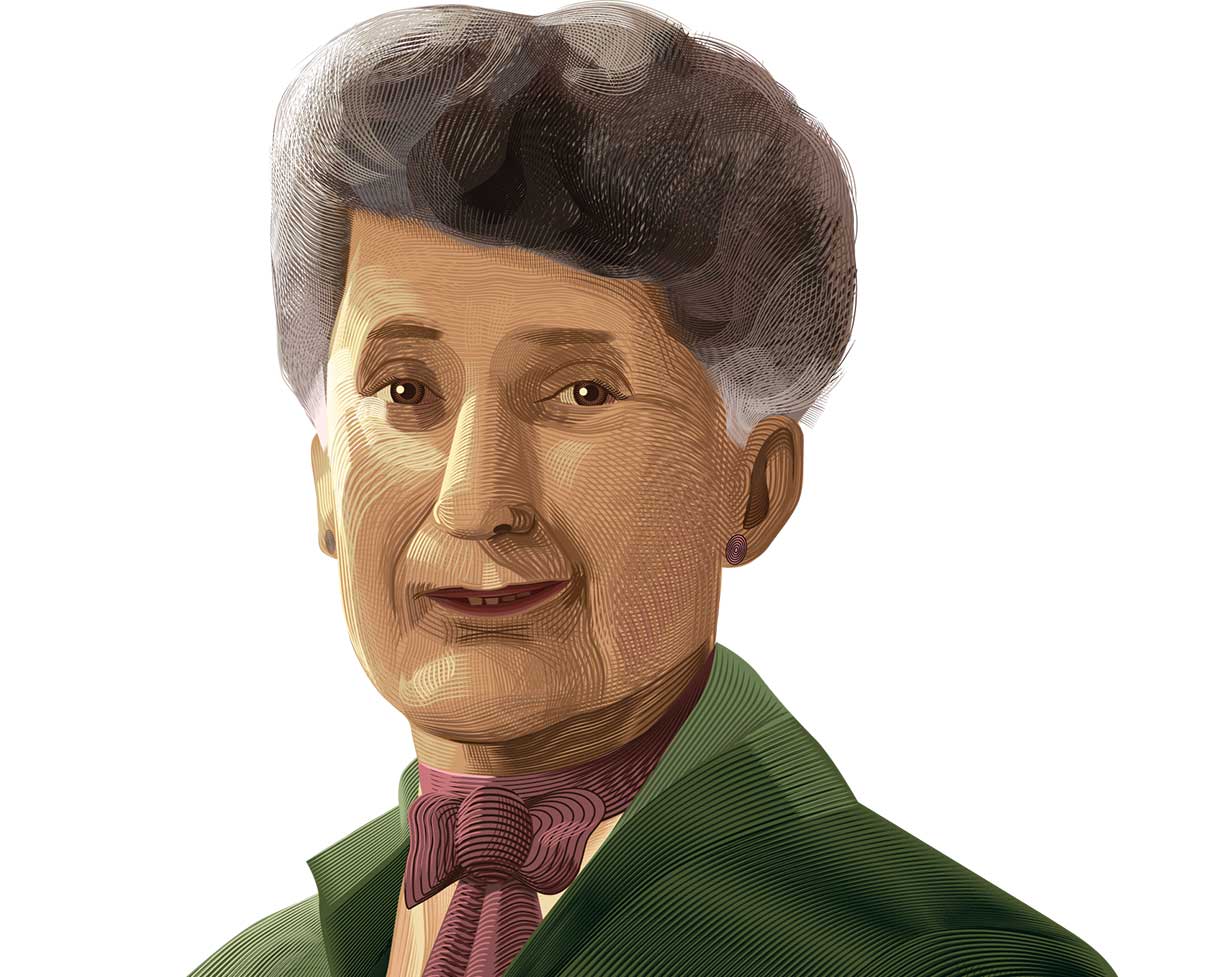Her Love of Beauty Resonates Still
Princeton Portrait: Elizabeth Milbank Anderson (1850–1921)
The Princeton University Chapel was built over the course of a few years in the mid-1920s, then second in size among university chapels only to the chapel at King’s College at Cambridge University. The Chapel’s scale was one of several noteworthy elements, including this: On Oct. 25, 1928, just a few months after the entire building had been dedicated, the chancel — the area in the Chapel where the choir sits — was named to honor a woman.
Elizabeth Milbank Anderson was permanently commemorated in the naming of the Milbank Memorial Choir chancel seven years after her death. The chancel’s dedication in her name stands out at the University, where most of the older buildings and memorials are named for the men who funded them. Described as “the crowning component of the Chapel,” the Milbank Memorial Choir was complete with beautiful stained-glass windows, oak wood pews with intricate carvings, and a stately organ.
“All through her life, Mrs. Anderson was known for her love of beautiful things,” said her cousin Albert Goodsell Milbank 1896 during the dedication, “and in this beautiful shrine her soul will find peace and contentment.”
Anderson was the daughter of a successful businessman, and, at 34, she inherited part of his estimated $32 million fortune when he died. In 1905, Anderson created one of the first foundations in the United States to be funded by a woman. She specified that the money from her foundation should “improve the physical, mental, and moral condition of humanity, and generally to advance charitable and benevolent objects.” By the time she died 16 years later, her foundation had given away about $9.3 million, about $123 million in today’s dollars.
Two of her most notable gifts were in New York City. Anderson was a trustee and vice chair of the board of Barnard College, and she gave the college three blocks of land. Her money also provided a building for use as a public bathhouse, where about 3,000 poor New Yorkers could bathe each day.
Thanks to her close relationship with her cousin Albert, who became the trustee of the Milbank Memorial Fund, his alma mater also benefited from Anderson’s fortune. The greatest beneficiary is perhaps the University’s Chapel Choir, which sings in the Milbank Memorial Choir during the Chapel service every Sunday morning.
“[Alumni] come back and they say, ‘I never realized what a gift it was to be able to sing in that space every week, and to be able to sing with those people every week,’” says the Chapel Choir’s director, Penna Rose. “Almost to a person, people say that.”
She noted that most alumni probably don’t know of Anderson’s legacy, though many are aware that the Chapel Choir presents a concert series in the Milbank family’s name. In 1961, the Milbank Memorial Fund endowed the Chapel Choir’s spring concert — this year’s program was to feature Mozart’s “Mass in C Minor,” accompanied by an orchestra, but the coronavirus outbreak forced its cancellation. The concert is always free to all and attracts up to 600 people.
In that concert series and the music that is made in the Milbank Memorial Choir every week, Anderson’s legacy at the University is loud and clear.
“She was not given the opportunity to go to Princeton because she was a woman,” Rose said, “but instead of being mad about that, she instead gave lots of money so that it could be used to increase the beauty in the world.”










No responses yet